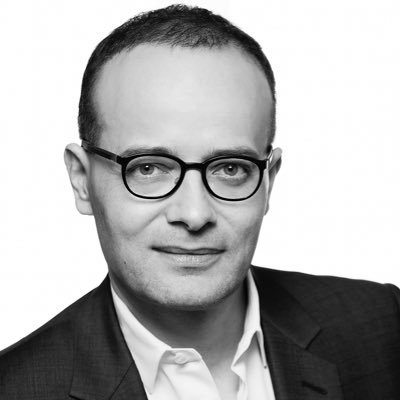Writer and entrepreneur Mathieu Laine wrote an extensive profile of Luigi Zingales for the French magazine Le Point. They discussed the pandemic, the nature of capitalism, and how this crisis has impacted the relationship between states and their citizens.

“Stop looking for a post-Covid intellectual, we have found one. His name is Luigi Zingales and he is one of the most influential economists in the world. According to this Italian professor from the University of Chicago, the world after the pandemic should go back to the fundamentals of what capitalism really is and fix its unsustainable imbalances.”
This how Mathieu Laine—entrepreneur, academic, and writer—begins his long profile of Luigi Zingales in Le Point, one of the most respected magazines in France.
Zingales told Le Point that capitalism “has become cynical, losing ground, favoring rent, elitist cronyism, and collusion. This supposed capitalism plays against itself and against us all, as it is obsessed with the disappearance of rules and detached from the tragic consequences of the rise in inequalities, as well as the denial of long-term concerns: research, preservation of the planet, equal opportunities, ethics, and personal freedom.”
According to Laine’s profile, Zingales has “freedom pegged to the heart,” having been influenced by ideas “rather of the left” circulating in a family where, as a child, he was “marked by the stories” that his grandparents and parents “told about Fascist Italy.”
The 1974 referendum over the legalization of divorce in Italy was a pivotal moment in Zingales’s intellectual growth, Laine writes:
“Luigi, barely eleven, attends the painful debate that tears apart Catholic Italy over the legalization of divorce. His father, ‘attached to the Church and personally refusing any separation, campaigned ardently for this right.’ ‘Only the freedom of the individual, he explains to his son, must guide such choices: neither God nor master can impose the conditions of happiness on anyone.’ Moved by this paternal feat, the future economist finds there a deep source of his commitment to the service of human freedom.”
Zingales graduated from Bocconi University, in Milan, then he went to MIT, in Boston, where he obtained his PhD in economics. The Italy he left in 1988, Zingales told Le Point, was “a system in which did not value what we knew, but who we knew.”
Since then, nothing has really changed in Italy, but other countries have followed in the same path, including the United States. Donald Trump is not so different from the Italian media mogul and former prime minister Silvio Berlusconi: both favored the evolution of their countries from capitalism to cronyism, which is “an open door to idleness, to the leveling down of an entire society. And if you are a woman, or worse, a migrant, it is a waste of time! Capitalism, the real thing, is not that. It gives everyone a chance, not just the supporters of the system who close the door behind them.”
Zingales and Laine also discuss the Covid-19 pandemic and its economic implications. Zingales [one of the editors of this blog] wrote a series of articles for ProMarket on the importance of social distancing and mass testing. In a recent column, he [along with co-authors Efraim Benmelech and Paola Sapienza] argues that one of the most relevant obstacles that anti-contagion measures face in the United States is that a majority of Americans do not trust the federal government. Crises are defining moments for the relationship between a State and its citizens.
In Le Point, Zingales states that
“Americans’ willingness to volunteer during the Second World War was directly correlated to the help their families received during the Great Depression. If JFK was able to ask Americans what they could do for their country, it was because they knew what their country had done for them.”
The way we all react to the current crisis will have effects, Zingales argues, “on the deep feeling of belonging, on the spirit of commitment that this will imply in the decades to come”.
The conversation between Zingales and Laine ends with a comment on democracy and capitalism. According to Zingales, “Capitalism tends to pay more for merit and democracy tends to level the playing field.” Such a “productive tension” gives each one of us opportunities, but only “provided that the rules of the game are not distorted.” Laine agrees with this analysis and, in the last sentence of his article, writes that “If the world were to reinvent itself, it is that of Zingales that should be taken as a model”.






